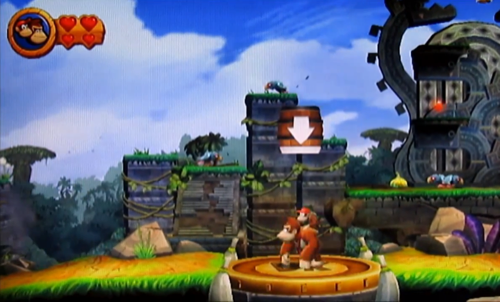
You might think that Nintendo, beleaguered by falling revenues, minuscule profit and the almost-but-not-quite-failed launch of the Wii U, already has enough problems to worry about.
And you would be wrong, as Nintendo itself set out to demonstrate last week by going out of its way to alienate a bunch of its fans on YouTube.
The fans in question make YouTube “playthrough” videos about, well, video games — features that combine elements of commentary, review, tutorial and walk-through. Some of these commentators reach millions of subscribers, and many support themselves in full or in part by running ads against their videos.
The Empire Strikes Back
This, apparently, Nintendo could not let stand. So last week, the game company began making mass copyright claims on YouTube gameplay videos — in particular, on the the popular “Let’s Play” series of playthrough videos. Nintendo did so via YouTube’s “Content ID” system, which allows the company to robo-claim ownership of videos that contain footage of its video games.
Nintendo isn’t trying to take down the commentary videos. But by asserting copyright, the game company can then run its own ads against the commentaries — and thus, of course, deprive the video creators of revenue.
In effect, Nintendo has put those video creators on notice that, while it will tolerate them for now, it won’t let them make money from their efforts. It doesn’t matter if the post is a detailed review, a think piece on the art style, or a tutorial for a difficult level, all of which involve a substantial additional effort on the part of the video creator. Insofar as Nintendo, is concerned, any ad revenue those efforts raised now belongs to… Nintendo.
Nintendo released this statement to the gaming-news site Gamefront last week:
As part of our on-going push to ensure Nintendo content is shared across social media channels in an appropriate and safe way, we became a YouTube partner and as such in February 2013 we registered our copyright content in the YouTube database. For most fan videos this will not result in any changes, however, for those videos featuring Nintendo-owned content, such as images or audio of a certain length, adverts will now appear at the beginning, next to or at the end of the clips. We continually want our fans to enjoy sharing Nintendo content on YouTube, and that is why, unlike other entertainment companies, we have chosen not to block people using our intellectual property.
For more information please visit http://www.youtube.com/yt/copyright/faq.html
ReadWrite also contacted Nintendo for comment. A spokeperson replied that the company is “looking into” the mass copyright claims, but offered no further statement.
Mass Unhappiness Ensues
Let’s put this simply: Nintendo’s move is one of the most egregious marketing mistakes ever committed by a major video-game company. It is going to come back to bite Nintendo. Hard.
Playthrough videos such as Let’s Play do a lot to fuel the commercial videogame complex, every bit as much as magazines and blogs. With their ad revenue diverted to Nintendo, however, these Internet-famous gamers have no commercial incentive to play, or talk in-depth about, any Nintendo games ever again.
Some are already boycotting Nintendo. Take, for instance, Zack Scott, a prolific creator of Let’s Play videos:
Since I started my gaming channel, I’ve played a lot of games. I love Nintendo, so I’ve included their games in my line-up. But until their claims are straightened out, I won’t be playing their games. I won’t because it jeopardizes my channel’s copyright standing and the livelihood of all LPers.
Dozens of videos by angry gamers have started to populate the site, and comment sections across YouTube are exploding.
“I’ve bought, played and enjoy several games simply because I heard about them and saw gameplay on YouTube,” one individual using the pseudonym TelaranRogue wrote in the comments to a new anti-Nintendo video (titled, cleverly enough, “Nintendo Hates YouTubers”). “With this move, Nintendo just killed their chance of getting sales from me.”
“I think Nintendo really took a crap on themselves in doing this,” wrote “robert letourneau” in comments to the IGN video “Let’s Not Play Nintendo Games.”
Nintendo’s Self-Inflicted Headshot
Shaun Spalding, a former attorney at New Media Rights, argues that Nintendo is really only harming itself. “[G]ameplay videos generate consumer buzz (so much so that game publishers actually pay some high-level Youtubers lots of money just to start ‘Let’s Playing’ their games),” he told me in email. Both the PS4 and Xbox have built-in capabilities that help gamers upload videos to the Internet, he said, but Nintendo has moved in the opposite direction.
It’s not even clear that Nintendo’s copyright claims are justified (although they’re likely to stand unless successfully challenged in court). Some critics argue that playthrough videos should qualify for the “fair use” exception to copyright because they don’t incorporate the entirety of the original game and also add a substantial amount of new creative material in the form of commentary, gameplay tips and the like.
As gaming commentator “Totalbiscuit” pointed out in his video on the topic:
[B]ecause you actually play the game yourself, and you do so in a different way, you transform the work in some respect. It becomes yours, it becomes unique.Too bad Nintendo doesn’t see it that way. At least it’s first in line to suffer from its short-sighted decision. Unfortunately, its fans are queued up right behind it.
Image screencapped from YouTube video “Let’s Play Donkey Kong Country 2” by Cobanermani456

















